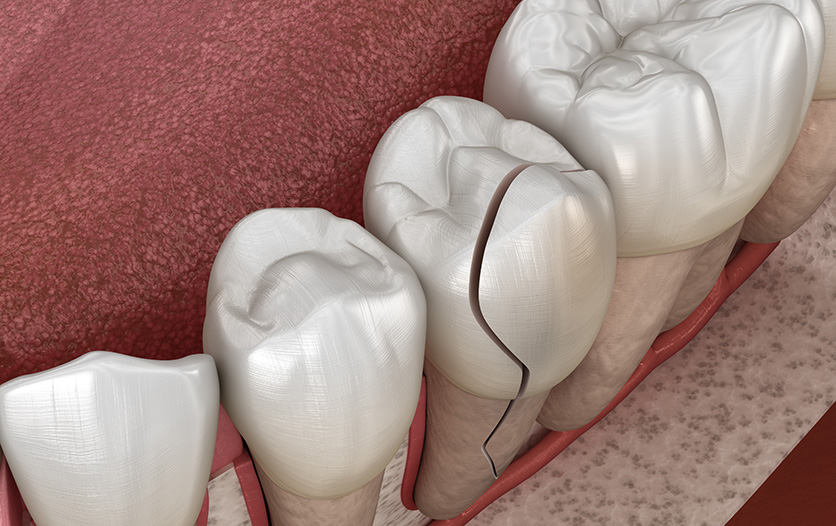
What Is a Root Canal? Causes, Symptoms, and Procedure Explained
A root canal, or endodontic treatment, is an oral procedure in which the infected pulp of a tooth is removed, and the inside of the tooth is fully cleaned then filled and sealed to prevent future infection.
Millions of people in the United States undergo a root canal procedure each year. Modern treatment methods make the procedure itself and after care fast and easy.
If you are experiencing moderate to severe tooth pain, one or more of the pulps inside your teeth may be infected and your dentist may recommend a root canal procedure. Read on to learn what causes a root canal and what you can expect of the procedure.
A tooth’s pulp can become infected by bacteria and lead to mouth pain, resulting in the need for a root canal.
Dental pulp (also known as the root of a tooth) is the inner layer of a tooth in which nerves and blood vessels are surrounded by a protective layer called ‘dentin’. In comparison to the outer shell of a tooth—the enamel, which is hard—dentin is soft. If bacteria makes its way through the enamel to the dentin, the pulp is at risk of infection and decay.
Indications of pulp infection include persistent toothache, pain when chewing, gum tenderness, temperature sensitivity, and visible deterioration.
The pain is not always limited to the mouth. Bacteria that enter your tooth and cause an infection can affect your overall health. Some patients suffering from root infections experience fever, face swelling, and even lymph node pain near their throat. Dentists who practice complete health dentistry can help you identify the source of these seemingly unrelated health concerns.
If you experience any of these symptoms, it is best to contact your dentist and setup an appointment.
Decades ago, root canals were often very painful. Today, a root canal procedure is akin to a cavity filling, and pain after the procedure is generally manageable and often subsides in just two or three days.
A root canal procedure will not begin until after an X-ray of your mouth is completed. This allows your dentist to understand the scope of the damage.
Just prior to the procedure, you will receive a local anesthetic to numb the mouth. The dentist will place a dental dam over the affected tooth to isolate the area.
The procedure begins when the dentist uses a specially designed tool to create a hole in the top of the affected tooth. The opening will expose the infected pulp. The dentist will remove the infected pulp from the tooth and then clean and dry the area thoroughly.
After the root is drained, the canal will be filled with a biocompatible material. The dentist will then permanently fill the tooth just as they would with a cavity.
If the infection is severe, the tooth may be left open to allow for sufficient draining. As such, you may be required to come back the next day to finish the procedure.
You may experience mild discomfort for a few days after the procedure, but pain is typically manageable. Be sure to follow the care instructions provided by your dentist. A follow-up visit may be required in the days or weeks after the procedure. Once the procedure is complete, your tooth is healthy and restored to normal!
Avoid future root canal procedures by maintaining healthy oral hygiene.
Practicing good oral hygiene goes a long way in preventing infection, cavities, and other tooth diseases. Make sure you brush with fluoride-based toothpaste, floss your teeth, and use mouthwash at least twice per day. It takes just five or six minutes—once in the morning and once at night—to maintain healthy teeth.
Be sure to discuss an appropriate care plan with your dentist. Most people visit the dentist twice per year, but your dentist may suggest that you visit more often to ensure your oral health.
You should also watch your diet. Bacteria loves sugar. If you regularly consume sugary drinks and sugary foods, you may increase the likelihood of a tooth infection.
If you are experiencing symptoms associated with a bacterial infection, contact your dentist today. You may need to undergo a root canal procedure to clear your tooth of the bacteria. Have more questions? Get in touch with Evers Dental today!




